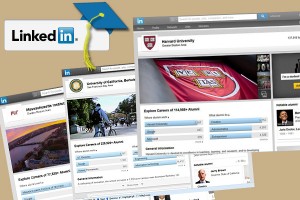Sign up for my FREE parent tips email and get my FREE Ebook on college financing!
Wednesday’s child may be full of woe but Wednesday’s Parent can substitute action for anxiety. Each Wednesday Wendy and I will provide parent tips to get and keep your student on the college track. It’s never too late or too early to start!
Wednesday’s Parent will give twice the info and double the blog posts on critical parenting issues by clicking on the link at the end of the article from pocsmom.com to parentingforcollege and vice versa.
____________________
What type of parent college coach are you? Each of us has a unique personality that will influence the way we coach our teens. The key is to find yourself, recognize your weaknesses, identify your strengths and adapt to provide your college-bound teen with the best coaching possible.
1-The “let me do it for you” parent

If you are this type of parent, you’ve most likely been doing everything for your child over the years: making their bed, cleaning their rooms, preparing their snacks, all in the name of parenthood. Don’t get me wrong, when your kids were young, they depended on you to take care of them. But part of being a parent is teaching them to do things for themselves. We taught them to tie their own shoes, ride a bike, go to school on their own, and hopefully budget their money by giving them an allowance. As they get older and the tasks become more difficult, like driving and preparing for college, we tend to want to take back the reins, fearing they might make mistakes that are life altering. But that’s the worst thing you can do. It’s your role to guide them, teach them, and train them. Always remember, the college search and application process is a teen project. You can help, but don’t do it all for them. They need to be involved and when those admissions letters arrive they will own that accomplishment.
2-The “over-anxious” parent
It’s natural to worry and fret about something you do not understand, or have never experienced. Parenthood definitely has its over-anxious moments. Teenagers are by nature over-anxious. They worry about everything: will they be accepted; will they make the cheer squad; will they pass their finals; will they be asked to the dance. Their four years of high school present numerous opportunities for anxiety and the last thing they need is added anxiety over their preparation for college. Knowledge is power—if you have the tools and know the facts you’re anxiety will decrease and you will be less likely to pass that along to your teen.
3-The “pushy” parent
Are you a “type A” personality? Do you push everyone around you to succeed? Do you strive for the best in everything? If you answered yes to those questions, you might be a pushy parent. There is a fine line between being pushy and being a cheerleader. If you push too hard, you will overwhelm your teen. You can encourage them by helping them to achieve their potential. Harping about deadlines and asking them constantly if they have completed their scholarship applications will only produce rebellion. The best way to handle your over-achiever personality is through organization. If you work with your teen to get them organized and they are aware of the deadlines, you won’t have to be that pushy parent.
4-The “my dreams are your dreams” parent
Did you dream of going to Harvard or Yale? Did you always want to go away to college and live in a dorm? Do you wish you had joined a sorority or fraternity during college or played college sports? Did you always want to be a doctor or a lawyer? We all had dreams that might not have been realized. But the worst thing you can do as a parent is to try to achieve those dreams through your children. Your teen will never be happy pursuing YOUR dreams. Their satisfaction is achieved from their own accomplishments. Their happiness comes from pursuing their own passion. The quickest way to ensure failure in college is to send your teen off to a place where they feel pressured to succeed at something they never truly wanted to pursue. If you have unfulfilled dreams, find something you can pursue yourself that will satisfy that passion; and encourage your teen to walk their own path.
5-The “I’ll think about that tomorrow” parent
This is where I fit in. I’m the world’s worst procrastinator. (The first step to recovery is admitting you have a problem…isn’t that what they say?) This is the worst time in your teen’s life for you to model or encourage procrastination. The next four years can be daunting and even overwhelming, but if you approach them without planning and organization, you will never survive. The problem with this philosophy is that it won’t work with deadlines, and the college maze is all about the deadlines. If you miss them, there are no second chances or do-overs. Not only do you risk missing the deadlines, as this type of parent you add extra stress to an already stressful time. Preparation and organization are keys to overcoming procrastination. Thinking about it tomorrow will only lead to frustration, disappointment, and regret. Remember the famous maxim-Carpe Diem (Seize the Day)!
6-The “uninvolved” parent
Your teen still requires your input. They may protest greatly and say loudly, “I can do it myself.” But what they really mean is I want to try with your support and help. If you make the mistake of turning the whole process over to your teen, the odds are great that they will become overwhelmed and frustrated to the point of giving up. There are so many decisions to be made and things to keep track of over the next four years. If you have a tendency to be an uninvolved parent, your teen will most likely feel abandoned in a sea of forms, applications and deadlines. Your job is always to encourage, guide and lead your teen to stay on top of those all-important college-related tasks that require their participation. It’s great to expect them to be responsible, but you and I both know that teenagers will be teenagers. Their minds and lives are headed in hundreds of different directions and staying on task can sometimes be inconceivable. It’s your goal to steer them back on course and help them reach their final goal.
7-The “well-balanced” parent
The well-balanced parent utilizes the best organizational tools to help their college-bound teen stay focused and on track. This is the type of parent coach we should all strive to become. You balance coaching, encouragement and guidance with information gathering, organization and goal setting. Your teen does not stress about deadlines because you have sat down together and created a calendar of upcoming scholarship applications, college entrance tests, activities, and school related events. You and your teen are confident and aware of the course you have set together and assured that because you are prepared and organized, the end result will be that your teen is able to reach their goal of college acceptance. You have planned ahead concerning the financial process and have utilized all the tools available to assure an impressive financial aid award package from the colleges where applications are submitted. You coach without pushing, pressuring or stressing out and your teen knows that they have your support and can look to you for positive feedback.
We all have different parenting styles, but think about incorporating the best of each and becoming a well-balanced parent. The college process will be less stressful and your college-bound teen will be less stressed.
Read Wendy’s (POCSMom) approach on different parenting styles.
 Students should end up with a list of 12 to 15 good-fit schools, a balanced list of reach, target and likely schools, all of which are an academic, social and financial fit. A great place to start your research is LinkedIn, which provides aspiring students and young professionals with the opportunity to make informed decisions on which universities, majors and skills will help them achieve personal and professional success in years ahead. LinkedIn University pages allows students to learn what’s happening on campus, ask questions of faculty, staff, students and alumni, check out notable alumni and explore the professional paths of graduates.
Students should end up with a list of 12 to 15 good-fit schools, a balanced list of reach, target and likely schools, all of which are an academic, social and financial fit. A great place to start your research is LinkedIn, which provides aspiring students and young professionals with the opportunity to make informed decisions on which universities, majors and skills will help them achieve personal and professional success in years ahead. LinkedIn University pages allows students to learn what’s happening on campus, ask questions of faculty, staff, students and alumni, check out notable alumni and explore the professional paths of graduates.








